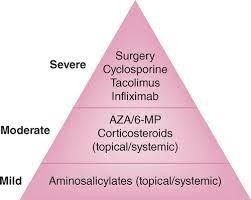A nurse is creating a plan of care for an infant who has osteogenesis imperfecta. Which of the following interventions should the nurse include in the plan?
Use pillows to position the infant when changing a diaper.
Instruct the parents to withhold immunizations until 1 year of age.
Obtain the infant's blood pressure with an automatic cuff.
Avoid using splints to support the infant's limbs
The Correct Answer is A
Choice A rationale:
Infants with osteogenesis imperfecta have fragile bones that can fracture easily. Using pillows or other soft support can help prevent accidental fractures during diaper changes.
Choice B rationale:
Immunizations are important for all infants and should not be withheld, even in the presence of osteogenesis imperfecta.
Choice C rationale:
Blood pressure measurement is not a common concern in infants with osteogenesis imperfecta.
Choice D rationale:
Splints may be used to provide support for the infant's limbs to minimize the risk of fractures.

Nursing Test Bank
Naxlex Comprehensive Predictor Exams
Related Questions
Correct Answer is A
Explanation
Choice A rationale:
The client's parent is typically the legal decision-maker for a 19-year-old client who is unable to make decisions due to their condition. Approaching the client's parent about considering organ donation is appropriate.
Choice B rationale:
While family dynamics can vary, the parent is usually the primary decision- maker for a minor or incapacitated individual. The grandparents may be consulted or involved in the decision-making process, but the parent's consent is generally required for organ donation.
Choice C rationale:
The client's older sibling may be consulted or involved in the decision- making process, but the parent's consent is generally required for organ donation.
Choice D rationale:
The client's spouse may be consulted or involved in the decision-making process, but the parent's consent is generally required for organ donation.
Correct Answer is B
Explanation
Choice A rationale
Omeprazole is a proton pump inhibitor used to reduce stomach acid production and is not typically used for treating bloody stools in inflammatory bowel disease.
Choice B rationale:
Infliximab is used to treat inflammatory bowel disease and can help manage symptoms such as bloody stools by suppressing the inflammatory response.
Choice C rationale:
Ondansetron is an antiemetic used for nausea and vomiting, not related to bloody stools.
Choice D rationale:
Metoclopramide is used to treat nausea, vomiting, and gastrointestinal motility disorders, not specifically indicated for bloody stools.

Whether you are a student looking to ace your exams or a practicing nurse seeking to enhance your expertise , our nursing education contents will empower you with the confidence and competence to make a difference in the lives of patients and become a respected leader in the healthcare field.
Visit Naxlex, invest in your future and unlock endless possibilities with our unparalleled nursing education contents today
Report Wrong Answer on the Current Question
Do you disagree with the answer? If yes, what is your expected answer? Explain.
Kindly be descriptive with the issue you are facing.
